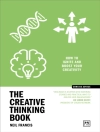Information and communication technologies have expanded dramatically in Latin America. During the last two decades, mobile phones have penetrated more quickly in this region than in developed regions at a remarkable rate. Similarly, the per capita growth rates of Internet users have been higher in developing countries than in developed countries. The really fast diffusion of newer technologies such as mobile telephony, broadband and Internet has opened up big opportunities for using these technologies in the delivery of information in businesses and social service providers in Latin America and the Caribbean.
‘Information Technologies in Latin America’ provides a collection of rigorous empirical studies that contributes to a better understanding of the role and impact of old and new information technologies on Latin American economic development. It provides evidence using randomized and quasi-experimental designed studies for different ICT interventions. In evaluating their development impact a critical concern has been to contribute to the little existing evidence. In fact, whereas many ICT projects in the developing world have been promoted by multilateral organizations, bilateral aid agencies and nongovernmental organizations in recent years, the extent to which these interventions and policies actually contribute to the development of the region is unclear. The book provides evidence on what works and what does not. An important objective is to test one of the frustrating benefits of randomized controlled trials, namely, their ability to show that a program works when it does not and in fact, important policy lessons can be gained from failed field experiments.
This collection of essays aims to provide valuable insight on both the promise and the pitfalls of trying to replace conventional, high-cost outreach with technological alternatives. Thus, it may be relevant both to researchers working in the area of information technologies and development, as well as to practitioners pondering how to leverage technology to improve outreach and reach clients in innovative ways.
Inhoudsopgave
Introduction Information Technologies in Latin America, Alberto Chong and Monica Yáñez-Pagans; 1. The Impact of ICT in Health Promotion: A Randomized Experiment with Diabetic Patients, Ana Balsa and Néstor Gandelman; 2. The Impact of ICT on Adolescents’ Perceptions and Consumption of Substances: Evidence from a Randomized Trial in Uruguay, Ana Balsa, Néstor Gandelman and Rafael Porzecanski; 3. Text Messages as Social Policy Instrument: Evidence from a Randomized Controlled Trial with Internal Refugees in Colombia, Mariana Blanco and Juan F. Vargas; 4. Radio and Video as a Means for Financial Education in Rural Households in Peru, Alberto Chong, Dean Karlan and Martin Valdivia; 5. Digital Labor-Market Intermediation and Subjective Job Expectations, Ana C. Dammert, Jose C. Galdo and Virgilio Galdo; 6. From Cow Sellers to Beef Exporters: The Impact of Traceability on Cattle Farmers and Laura Jaitman; 7. The Labor Market Return to ICT Skills: A Field Experiment, Florencia Lopez-Boo and Mariana Blanco; 8. Soap Operas for Female Micro Entrepreneur Training, Eduardo Nakasone and Maximo Torero; Index.
Over de auteur
Alberto Chong is a professor of economics at Georgia State University, USA.
Mónica Yáñez-Pagans is a senior economist at the World Bank, Washington, DC.










